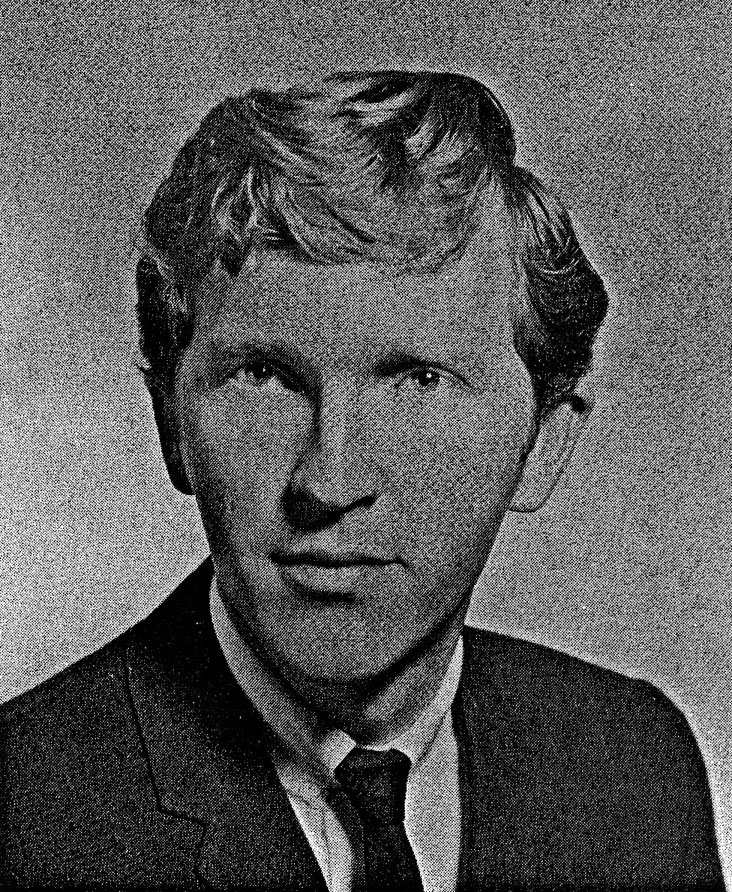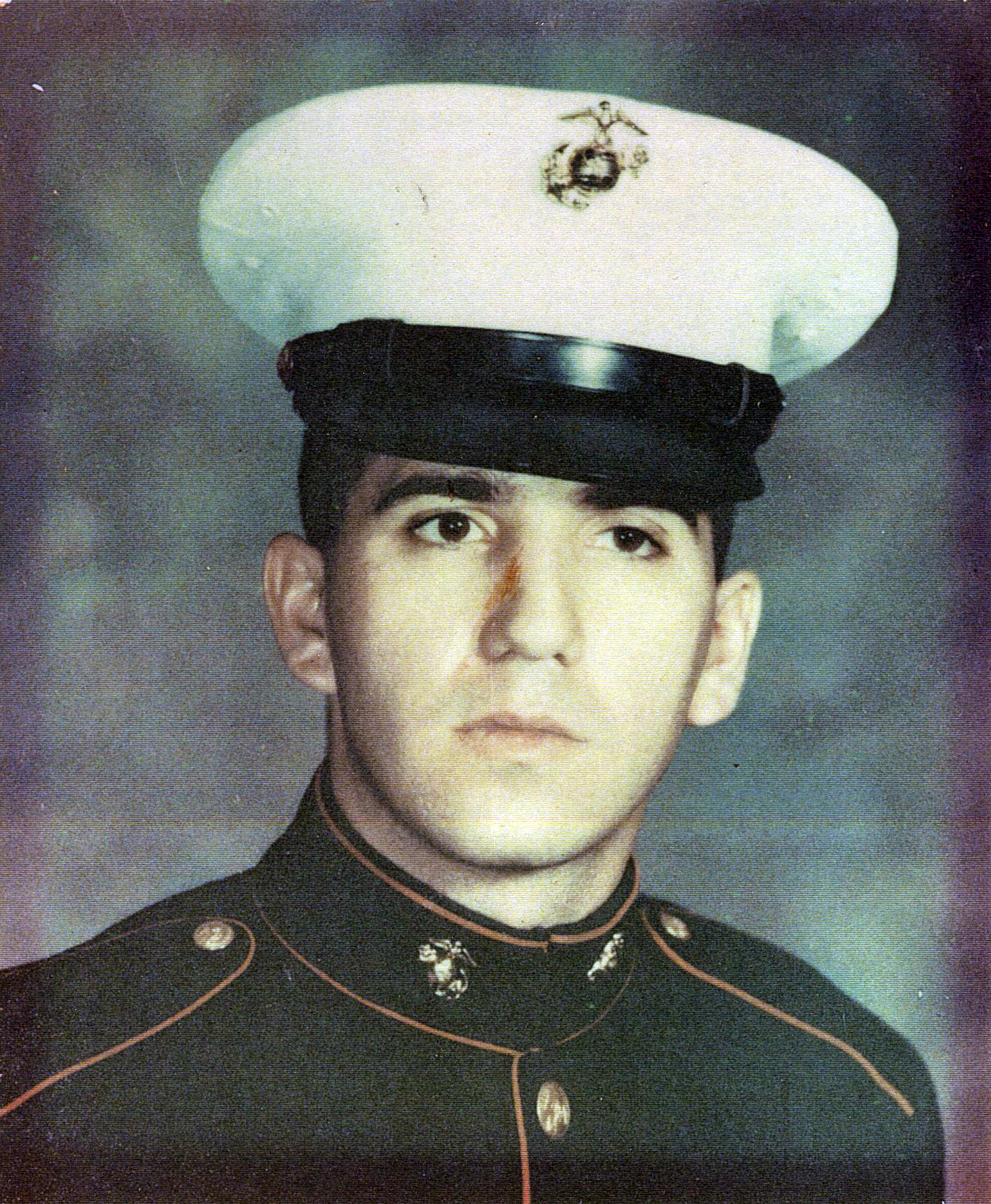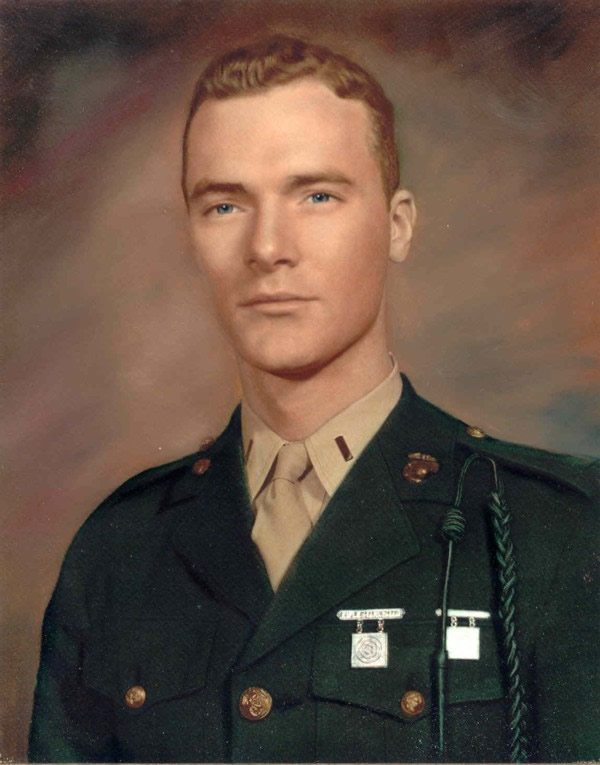
JAMES J STRANGEWAY - CPL
- HOMETOWN:
- clifton
- COUNTY:
- Passaic
- DATE OF BIRTH:
- March 15, 1943
- DATE OF CASUALTY:
- July 09, 1968
- BRANCH OF SERVICE:
- Army
- RANK:
- CPL
- STATUS:
- KIA
- COUNTRY:
- South Vietnam
Biography
James J. Strangeway, Jr. was born on March 15, 1943, and lived in Clifton, NJ. He graduated from St. Peter's Prep School. James continued his education at Seton Hall University, graduating in 1967. In college, he was active in Booster Club, Phi Beta Gamma, Student Council, Hall's Echo and Wings.
James entered the US Army in September 1967 and attained the rank of Corporal (CPL).
On July 9, 1968, Strangeway was killed in action in South Vietnam, Hua Nghia Province. He was 25 years old.
He was awarded the Bronze Star, Purple Heart and the Combat Infantry Badge.
Although the rest of the world may have known him as James or Jim, to his family and friends - those who knew him best - he will always be "Binky". It is impossible to remember him as anything else.
James Joseph Strangeway, Jr. entered the world on March 15, 1943, the second of four children born to Genevieve and James Strangeway. As a very young child he was seriously ill several times - sick enough to gravely concern his mother, a registered nurse, who tenderly used all of her skills and countless prayers to keep her son alive. Under her watchful eye, he thrived and lived to become a strong, handsome young man.
Bink attended St. George's Grammar School along with his two brothers, a sister and most of the rest of his cousins. By all accounts, he was a good student and had an aptitude for learning things quickly and well. He and his cousin Jim took the train all the way to Jersey City every morning to St. Peter's Prep for their high school education. Four years later, after earning an academic scholarship, Bink entered his freshman year at St. Peter's College. After a few months, he began to question his path in life thinking he might be better off if he quit school and got a job. He met with quite a bit of family opposition at the time, but he followed his own inclination to see what the working world held for him.
It wasn't long before Binky decided that higher education was what he wanted after all, so he enrolled at the Paterson campus of Seton Hall University. He was able to hold a job and pay his own tuition. While at Seton Hall, Bink pursued a degree in Secondary Education with the idea that he would teach high school English when he graduated.
The job that Bink held while attending college was at the old A&P on Route 46 West in Clifton (now Discount Furniture Mart.) He was usually the first person anyone would see as they entered the side door. Because of his naturally friendly nature and quick sense of humor, he soon got to know his co-workers and many of his customers quite well.
It can certainly be said that in the short time Binky had, he lived life to the fullest. It is rare to find a person of any age more "alive" than he was and with such a tendency to turn life on its ear every once in a while just to keep things interesting. He had a talent for so many things ranging from mechanical to intellectual. Bink could be frequently found with his head under the hood of a car trying to fix something. He devoured books by the dozen. He was never afraid to try something new, so it was no surprise when he picked up a guitar shortly after the Beatles became so popular and taught him to play. He would learn new songs with lightning speed. While his singing voice was not one that would win prizes--it had a tendency to "crack" at the oddest moments--he did a pretty good imitation of Buddy Holly's "Peggy Sue" complete with all the hiccups. His tastes were eclectic ranging from Bob Dylan to Johnny Mathis to Segovia. He shared his newfound knowledge of the guitar with those around him in school and in the neighborhood. Bink would get together to "jam" with other musicians at the drop of a hat. He and his friends would rattle the walls of the basement where a couple of amplifiers and electric guitars could be plugged in.
Bink had a few healthy habits. You could, from time to time, find him tooling around the neighborhood on a bicycle. More than likely, though, you'd see him breaking the speed limit in an old, green Chevy. Breakfast might be a cold bottle of Mountain Dew and some chocolate cupcakes. Once, when reminded that smoking could kill him, he replied, "I know, but I could also get hit by a bus!"
In the spring of 1967, Bink did his student teaching in the English Department of Clifton High School and graduated from Seton Hall that May. The United States was at the height of its involvement in the Vietnam War, and the military draft was nearly inevitable. Bink was offered a job in one northern New Jersey school district but turned it down. Instead he was drafted into the Army on September 1967 and received his basic training at Fort Dix and advanced infantry training at Fort Jackson, South Carolina. With all of his many talents, he probably could have managed to find his way into a non-combat position with the Army had he tried, but Bink never asked for special treatment from anyone. He came home for the last time in March of 1968 with orders to go to Vietnam when his leave was over.
There was a gathering of family and friends at the Strangeway family home the night before Bink was to leave for Southeast Asia. No one approached this reunion lightly. By this time, there were 500,000 American soldiers in Vietnam, and the casualty lists brought the news that 500 to 700 of them died each week. Activists and politicians were voicing opposition to the war. Binky had been called, and he was going. He would do what his country asked him to do. With a mix of tears and laughter, prayers and best wishes, everyone said good-bye in his/her own way. Binky himself never let anyone get too maudlin. He made everyone laugh in his easygoing way, and the following morning he was off with a salute and a smile.
In the four months that Binky was in Vietnam, he must have received hundreds of letters. His mother alone wrote to him every single day. He didn't have much time to write back, but when he did, there were few details of the war. He touched base with home, but he didn't seem to want to worry anyone too much.
America publicly mourned the passing of Martin Luther King, Jr. and Bobby Kennedy. Privately, hundreds of American families mourned their lost young men. In the late afternoon of July 10, 1968, the Strangeway family received word that Binky too was gone. The official letter from the government said that he had died July 9th as a result of fragments received from a "friendly" mine while his company was returning from an ambush.
Within an hour of the news the house began to fill with people, all wanting to be there in case they were needed. Over the course of the next week, the family waited for the body to arrive. Dozens of family and friends came and went bringing food, hugs, prayers and support--anything that could be of help. On one of those days, a letter arrived from Binky dated the day he was reported as being killed. For a few brief hours, there was a glimmer of hope. Maybe the Army was mistaken? Maybe there was some kind of mix-up? Hope faded as time passed, and reality set in. It seemed like forever before Bink's remains made it to the funeral home. There was no doubt as to who was laid out in that casket, untouchable, sealed under a pane of glass: that handsome unmistakable face, his hair bleached by the tropical sun, Binky was home.
The proof of how well he was loved was witnessed in the next several days. Hundreds of people from all walks of life poured through the funeral home. After the funeral Mass, the procession from the Church was so long that there was no visible end to the line of cars traveling to the cemetery. The military service at the grave was so reminiscent of some we'd seen on television with firing rifles, taps, the folding of the flag and the presentation of the flag to the family...and then it was all over. The numbness of unbelievably would eventually turn to many tears. Every now and then a song, a phrase, a word will bring him back clear as day.....forever young, handsome and strong, our Binky.
He achieved the rank of Corporal and was awarded the Bronze Star, The Purple Heart, The Combat Infantry Badge and several other medals related to service in Vietnam.
Written by Regina Fister, Cousin
Corporal James Strangeway Jr. wrote the following "epitaph" before his departure for Vietnam in March 1968. This appeared in "Wings", the Seton Hall Magazine in 1969.
Well, now to write my epitaph
Only say that I did laugh.
In the darkest night
The light of life still burns.
On the slowest day
Our little world still turns.
When you can no longer bear
Your burden of grief
The night will come
And bring you sleep.
When the brightest day
Is dark as night,
What ever you do
Is never right.
And the pain in your heart
Is far from light.
Dawn will come
With tomorrow's light.
For tomorrow is another day
Some of your cares may slip away.
And you can greet the day with a grin
And taste the sunshine on the wind.
Come and tell me all your troubles...
They aren't so great---
You would think they are the worst.
Did you ever think of God's?
Sources: Seton Hall University yearbook, The Viet Nam Remembrance Committee & Clifton War Veterans Monument Committee and NJVVMF.
Remembrances
Be the first to add a remembrance for JAMES J STRANGEWAY
Help preserve the legacy of this hero, learn about The Education Center.
LEARN MORE

